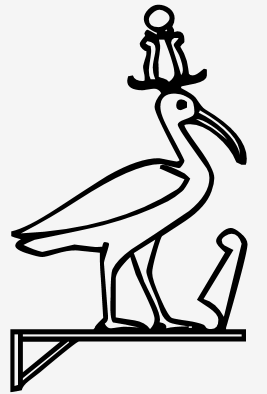Triad (τριάς) is the ancient Greek word for “three.” The ancient Pythagoreans considered the numbers 1-10 each to embody certain qualitative aspects (in addition to their quantitative function). Speculation on the qualities of the first ten numbers is sometimes called “arithmology” by modern scholars, in order to distinguish it from from the modern sense of “arithmetic.”
On the Triad (περὶ τριάδος):
Theology of Arithmetic 16.4-13: “The monad is like a seed in containing in itself the unformed and also unarticulated principle of every number; the dyad is a small advance towards number, but is not number outright because it is like a source; but the triad causes the potential of the monad to advance into actuality and extension. ‘This’ (τὸ τόδε) belongs to the monad, ‘either’ (τὸ ἑκάτερον) to the dyad, and ‘each’ (τὸ ἕκαστον) and ‘every’ (τὸ πᾶν) to the triad. Hence we use the triad also for the manifestation of plurality, and say ‘thrice ten thousand’ (τρισμύριοι) when we mean ‘many times many’ (πολλάκις πολλοί), and ‘thrice blessed’ (τριςόλβιοι) [for ‘many times blessed’].”
Theology of Arithmetic 16.18-17.2: “The triad is called ‘prudence’ (εὐβουλία) and ‘wisdom’ (φρόνησις) – that is, when people act correctly as regards the present, look ahead to the future, and gain experience from what has already happened in the past: so wisdom surveys the three parts of time, and consequently knowledge (γνῶσις) falls under the triad.
“They call the triad ‘piety’ (εὐσέβεια): hence the name ‘triad’ is derived from ‘terror’ (τρεῖν) – that is, fear and caution.”
Theology of Arithmetic 18.21-19.2: “There are three configurations of the moon – waxing, full moon, and waning; there are three types of irregular motion of the planets – direct motion, retrogression and, between these, the stationary mode….”
Theology of Arithmetic 19.17-20: “They call it ‘friendship’ (φιλία) and ‘peace’ (εἰρήνη), and further ‘harmony’ (ἁρμονία) and ‘unanimity’ (ὁμόνοια): for these are all cohesive and unificatory of opposites and dissimilars. Hence they also call it ‘marriage’ (γάμος). And there are also three ages in life.”
Isopsephy of 3 (prime):
- βᾶ (ba) – king! (a shortened form of βασιλεῦ, “O king!”)
